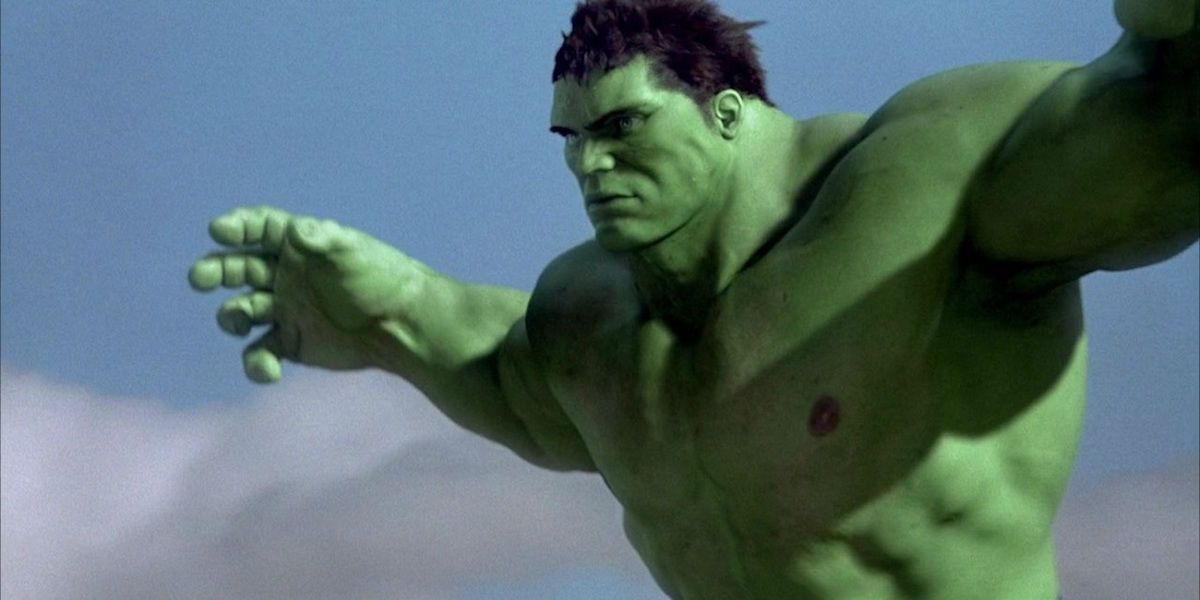The Hulk is one of Marvel's most famous heroes. His first comic appearance was in 1962, his first animated appearance came four years later and The Incredible Hulk, a fairly loose television adaptation, aired its first season in 1978. Meanwhile, two separate Hulk-centric films, 2003's Hulk and 2008's The Incredible Hulk, predate the current Mark Ruffalo Hulk known in the Marvel Cinematic Universe. The 2003 film, directed by Ang Lee, received mixed reviews and was both praised and criticized for its intellectualism, and it also changed some of the staples of the source material, including Bruce Banner's origin story.
In the comics, Banner is a scientist who shields Rick Jones from a gamma bomb. He saves Jones, but he absorbs the gamma radiation. He soon discovers that he can turn into a creature others call a "hulk" when angry, and his overarching story largely focuses on his struggles balancing his Hulk and Banner identities while keeping the people around him safe.
This is used as a template for future interpretations of the Hulk. In the MCU, Banner's exposure to gamma radiation isn't from a bomb. It's from an experiment that was intended to recreate the supersoldier program that created Captain America. In this instance, Bruce turns into the Hulk when his heart rate goes over 200 beats per minute, and after killing and injuring several people, he flees the scene, not wanting to be used a weapon. Animation has often followed this backstory, as did the 1978 television show, with a few minor alterations.
The 2003 Hulk, on the other hand, took a different approach. Banner's father conducts genetic experiments on himself and discovers early on that his son inherited his mutant DNA. He tries to find a cure, but the government shuts his research down. This prompts Banner's dad to blow up his gamma reactor, accidentally killing his wife. He's then arrested and institutionalized, and Banner, who suppresses all memory of his biological parents, is put in foster care.
As an adult, Banner works as a researcher at the University of California, Berkeley with his ex-girlfriend Betty Ross, who happens to be General Ross' daughter. Major Glenn Talbot takes an interest in their research, hoping to use it to build regenerating soldiers. Meanwhile, General Ross is concerned that working in the field of genetics will lead to Banner losing his sanity, just like his father did.
Banner still comes into contact with the gamma radiation by accident, but in this version, the radiation merges with his mutant DNA. This leads to excessive exposition and more conflict with his father, General Ross and Major Talbot, not to mention his own conscience. After being brought back to humanity by Betty, Banner battles his father, and both are presumed dead; although, Banner has retreated to the Amazon to help people.
The mutated DNA element of the story feels superfluous, but more than that, it takes some of the agency out of Banner's origin story. In most other versions, he becomes the Hulk because he does something brave and has to suffer the consequences, so guilt is inextricably tied up with his character. While that element remains in 2003's Hulk, it's unnecessarily complicated by fictional science and father issues.


